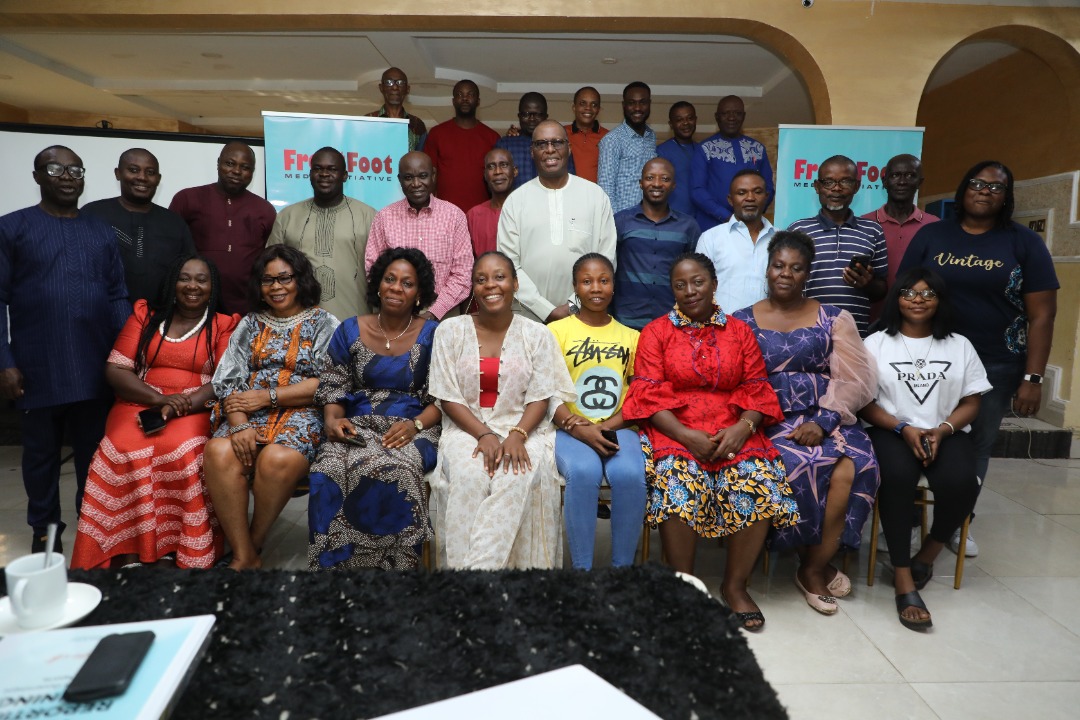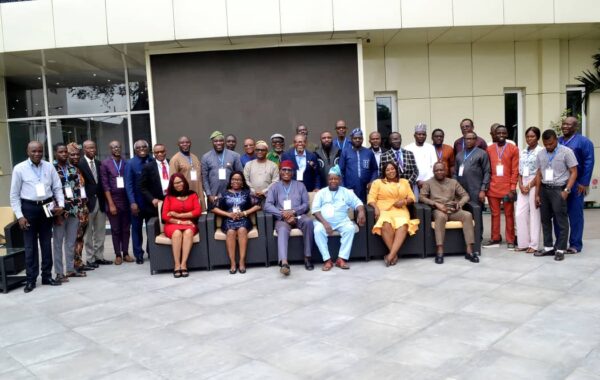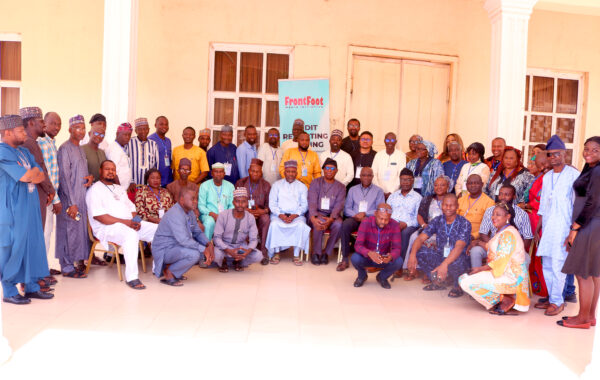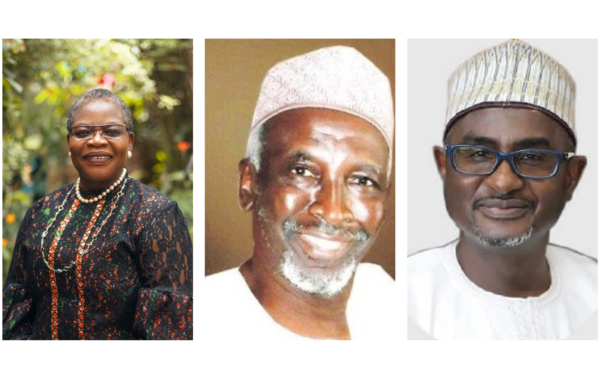
Reporting State Government Audits Will Boost The Accountability of Government and Journalism
It was now time for a roadmap to reporting state audit reports on the second day of the Awka workshop. During pitches for stories based on the audit reports, journalists from Enugu and Anambra States excitedly discovered no fewer than ten story angles to pursue. Some of the issues the Enugu and Anambra State Audit Reports threw up for them were
- Are moribund companies getting budgetary allocations as captured in the 2019 audit report?
- Who should account for funds to educational institutions run by the state government?
- Enugu Auditor-General reports that 33 MDAs yet to submit audit reports for 15 years.
- Enugu State Audit report indicts many MDAs for hosting dormant accounts.
- Anambra AuG queries Local Government expenditures without receipts.
FrontFoot Media Initiative held in October 2022 two workshops in Benin City and Awka to train journalists on Audit Reporting.
The Benin City workshop on 3-5 October was for journalists from Edo and Delta States while the Awka workshop on 19-20 October featured participants from Anambra and Enugu States. It was also open to journalists from neighbouring Delta State who could not make it to Benin City due to broken roads.
Some key learnings
Auditors are independent servants of the Nigerian constitution and report only to the People, experts affirm at Audit Reporting workshop
- Governors can appoint but cannot remove Auditors-General
- Auditors-General serve until retirement or death
- The AG is a powerful, independent servant of the Constitution
- AG has power to conduct periodic checks
- The financial statement of the Accountant-General cannot, and must not, be misconstrued to be the same as the report of the Auditor-General.
- The media should exercise powers the constitution confers on them to hold government accountable to the people
“The Auditor-General is responsible only to the People through the House of Assembly, and once appointed, can remain in office until he retires or dies. That makes him a powerful, independent institution and servant of the constitution”.
Sonala Olumhense, syndicated columnist across several platforms and director of FrontFoot Media, asserted at both workshops. His paper on the Audit Imperative for Nigerian Journalism set the stage for extensive discourses on various issues around accountability in public office and journalism and how journalists reporting on the audit reports of state governments would assist the process.
Experts in accounting, auditing, public finance, and media spoke at the workshops. They include Chief Chukwuemeka Joe Anika, FCCA, and Mr Godswill Ochenogor, an accountant, in Benin.
Finance experts in Awka were Professor Paschal Okolie, Special Adviser to the Governor of Enugu State on Financial Matters, Dr Emenike Ezinando, permanent secretary in the Anambra State Ministry of Finance, and Prof Emma Okoye, Dean of the UNIZIK Business School.
Media experts were FrontFoot directors Sully Abu, Emeka Izeze, Sonala Olumhense joined by Training Coordinator Chido Nwakanma.
The experts submitted that to enhance the fight against financial misconduct and corruption, state governments must empower the Office of the Auditor-General (AG) as stipulated in the 1999 Nigerian constitution.
States will do so through autonomy for the Office of the AG, enabling legislation, implementing national and international standards, and having independent and robust state houses of assembly.
Dr Emenike Ezinando, permanent secretary in the Anambra State Ministry of Finance, asked, “Is it possible for an Auditor General to function expectedly without basic independence, requisite autonomy, and above all, the backing of a committed and independent Legislature? Perhaps, this explains the emerging trend of some of our Auditors General turning significant pages of their Annual Reports into inaugural addresses.”
Professor Paschal Okolie, Special Adviser to the Governor of Enugu State on Financial Matters, submitted that while Nigeria has many laws to support the audit function, many challenges hamper implementation. They include ineffective compliance by many states with national and international standards and moral failure. Okolie compared Nigeria to the Great Wall of China, which enemies breached only because of citizens’ lack of character and integrity.
Noting that “the primary motive of government budgeting is to secure the welfare of the people”, the Director of the Unizik Business School and professor of accounting, Prof Emma I Okoye, declared that “A good government budgeting practice cannot thrive in a system void of respect for the rule of law, transparency, accountability and good governance”.
Where does Nigeria stand today in tackling financial corruption? The experts say there are many enabling legislations.
- The 1999 Nigerian constitution in Sections 80 charges the Auditor-General to check federal government accounts and in Section 120 charges state auditors-general to do the same at state level.
- Adoption of the International Public Sector Accounting Standards (IPSAS) for Public Sector Entities (PSE) by Federal Government approval on 28 July 2010.
- Development by the Federation Account Allocation Committee (FAAC) of a comprehensive standardized National Chart of Accounts to be used by the three tiers of government.
- Implementation of the Treasury Single Account (TSA) to harmonise government accounts and enforce efficient cash management.
- Implementation of the State Fiscal Transparency, Accountability and Sustainability (SFTAS) programme
- World Bank and Federal Government collaboration to support states with grants to implement the 22-point Fiscal Sustainability plan
- The Open Government Partnership Agenda to strengthen fiscal transparency, accountability, and sustainability in the states in Nigeria. Only 15 states have signed it.
What role for the media? The experts called on the media to act on their constitutional mandate in Chapter 2, Section 22 of the 1999 Constitution.
“The press, radio, television and other agencies of the mass media shall at all times be free to uphold the fundamental objectives contained in this Chapter and uphold the responsibility and accountability of the Government to the people.”
It is partly on account of this call to duty in Section 22 that FrontFoot has organized this training module as one of its targeted training programmes to draw closer attention to one area of responsibility to which insufficient attention is being paid by the mass media: state audits, by which the people may be apprised of how state officials manage or mismanage state resources.
Sully Abu, in “Holding State Governments Accountable”, urged journalists to contribute to rewriting the Nigerian narrative of holding people to account. “The self-inflicted tragedies of our nation derived substantially from the failure to hold people, not just the leaders, to account for their actions and transgressions. This has been quite evident at the state level where governance touches the lives of most people and where only cursory attention is paid to the constitutional and institutional mechanisms to enfore accountability.”
Izeze, Abu and Nwakanma asked journalists to be ingenious, interrogate the states’ audit reports for stories, follow up on the leads from the reports and dig deep. They could deploy solutions and investigative journalism.
They can also look up Google and state government websites to find the audit reports.
Audit reports are gold mines of stories
If dogged digging is the nature of mature journalism, this is particularly true of stories about audits and accountability. It is why nobody advertises audit reports or audit reporting, and why officials would rather audit reports go unnoticed.
But it is the nature of true journalism to seek to reveal what some try to hide. To that end, our audit reports are a goldmine of some of the biggest unreported stories and questions waiting to be asked since 1999.



